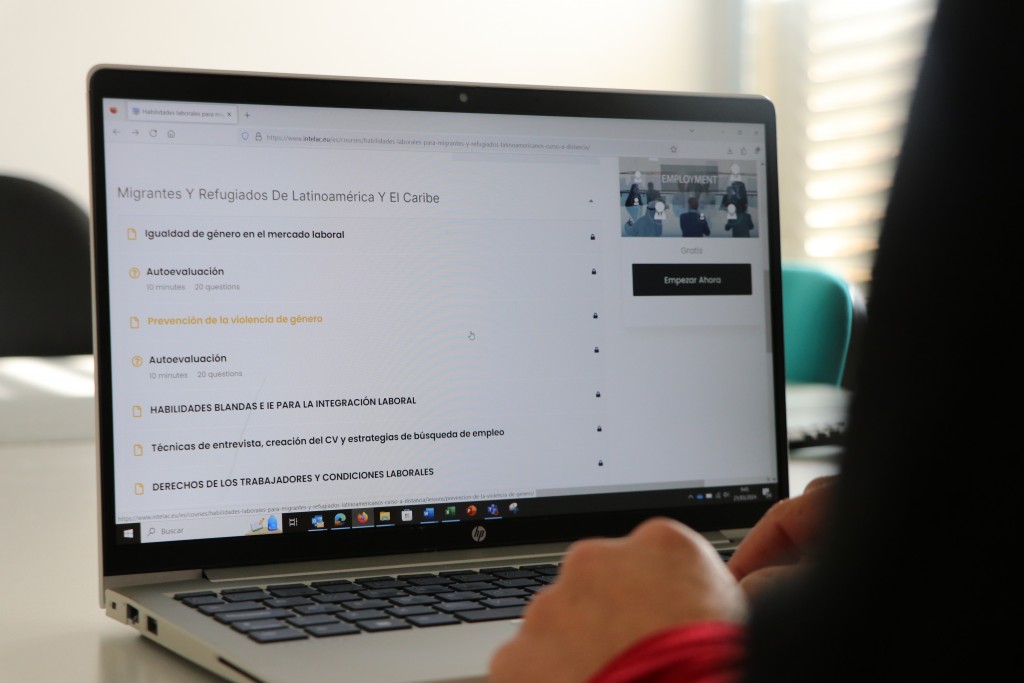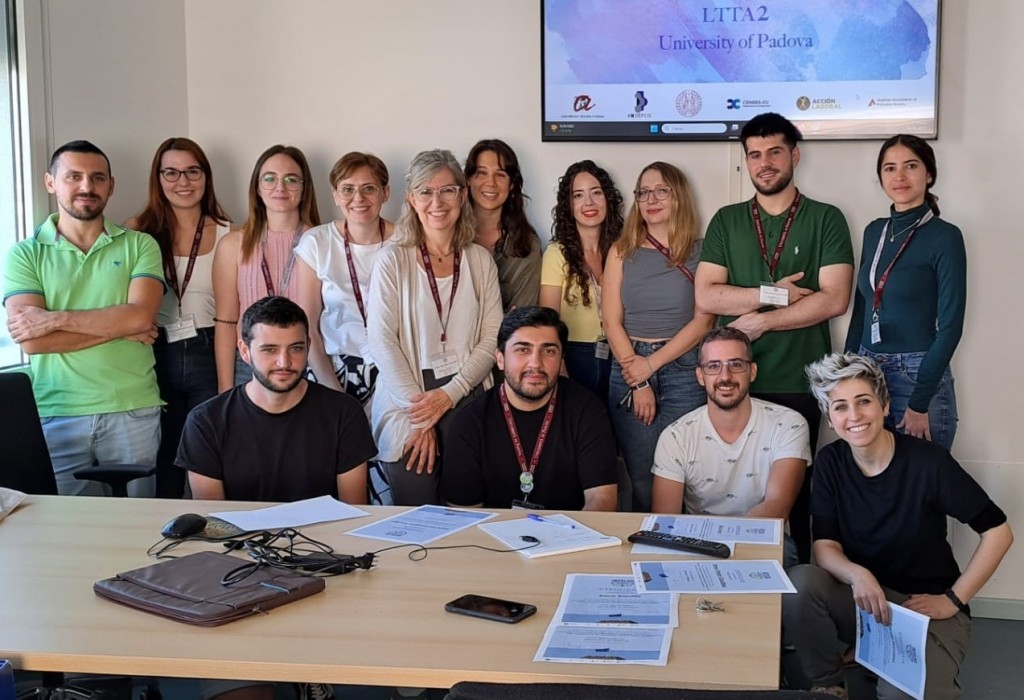Press notes 21/03/2024
The URV has designed a free online training programme to integrate immigrants into the workforce
The target audience of the courses, which are already available, are those people who have newly arrived from Latin America and the Caribbean, as well as the professionals from the companies and organizations who welcome them

The target audience of the courses, which are already available, are those people who have newly arrived from Latin America and the Caribbean, as well as the professionals from the companies and organizations who welcome them
It is crucial that immigrants be able to find employment if they are to effectively integrate and contribute to the economies of the host state. However, reality does them no favours: they tend to have higher unemployment rates, occupy less qualified jobs and are subject to job insecurity. Led by the URV, the European project InteLAC Market has designed a free online training programme to help them find work.
The training programme consists of two courses: one targets immigrants and refugees from Latin America and the Caribbean, while the other targets entrepreneurs and the members of organisations providing assistance. The courses have been designed on the basis of the results of a previous multidisciplinary study, which has identified the main barriers these people face when they arrive in Europe and what they need to find employment in various countries of the consortium: Austria, Belgium, Italy and Spain.
The course for immigrants who have just arrived from Latin America provides interactive resources, case studies and practical activities designed to build the confidence of participants and prepare them for the challenges and opportunities of the labour market. Structured in seven modules, it provides interview techniques, job search strategies, communication skills and other aspects important to the labour market. The course also provides tools to identify sexual harassment and gender-based harassment in the company.
The course for managers of the business world and members of organizations that receive migrants from Latin America and the Caribbean offers solid training related to the effective integration of these people in European labour dynamics. The content includes training in Corporate Social Responsibility and the ways in which companies can contribute to the realization of decent work.

“The ultimate goal of the training programme is to help the participants find employment as people with full rights”, explains Inma Pastor, the principal investigator of the project, from the URV’s Department of History and History of Art. “To this end, and to prevent any possible discrimination, the course also includes materials that raise awareness about gender inequalities in the workplace”.
Registration for the courses is free of charge and is now open. Successful completion of the course is accredited by a certificate. Although there is a recommended completion time, participants can do the course at their own pace. Both courses are available in Spanish, English, French, Italian and German.
Precariousness and vulnerability
Immigrants and refugees from Latin America and the Caribbean usually have higher unemployment rates, occupy less-skilled jobs (not always due to a lack of qualifications) and have to work in more precarious conditions. These results have been obtained within the framework of the InteLAC Market project, which has received funding from the Erasmus+ programme of the European Union led by the URV’s research team SBRLab (Social & Business Research Lab) and coordinated by the researcher Inma Pastor.
Five European institutions have engaged in a multidisciplinary study that has identified the main barriers that these migrants face when arriving in Europe. Among the most important are the difficulties in regularizing their residence permit, the bureaucracy involved in having their qualifications officially recognised, the lack of work experience in the host country, and the stigma and discrimination by companies. This leads to job insecurity and raises the need to address all aspects of this problem, taking into account all the factors that can influence the employment situation of this group.
